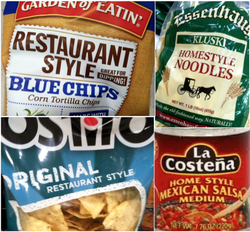
My uncle commented that the meal was “restaurant style,” and my mom took offense. Was it a compliment? What did he mean by “restaurant style?”
At the time, no one asked him to clarify, and, years later, the family debate on the topic (still) sounds like this:
· My mom is certain that her brother was not impressed. To my mom, a home cook takes care to prepare a meal with respect for quality and tradition; whereas, restaurants “throw things on a plate” to turn a profit.
· I (and others) suspect he was complimenting the meal (at best) or inferring that the dishes were new or different (at worst). In Italy, restaurants are places where you’re introduced to a new flavor or a fresh spin on a traditional dish. You eat out to enjoy something you cannot (or would not) make yourself.
We’ll never know for sure if this was a cross-cultural misunderstanding or the case of an ungrateful guest.
How could a brother and sister have such a misunderstanding?
My mom grew up in Italy, but has lived in the U.S. for over fifty years. Her brother has lived in Italy his whole life. They see each other infrequently, when my family visits Italy.
It’s possible that the cultural lens through which each of them is filtering the term “restaurant style” is different. I suspect that my mom’s cooking skills don’t factor into the discussion at all. It’s all about the cultural value you attribute to restaurants and eating out.
Clearly, there’s mixed opinion on the topic.
In the U.S., marketers play to both camps—those of us who wish we could prepare a meal as well as our favorite restaurants do, and those of us who long for home-cooked meals. A quick walk down any grocery store aisle will display some products boasting “home style” and others promising “restaurant style.”
Which is your bias? How might it influence your shopping choices? Or your comments to a gracious host?


